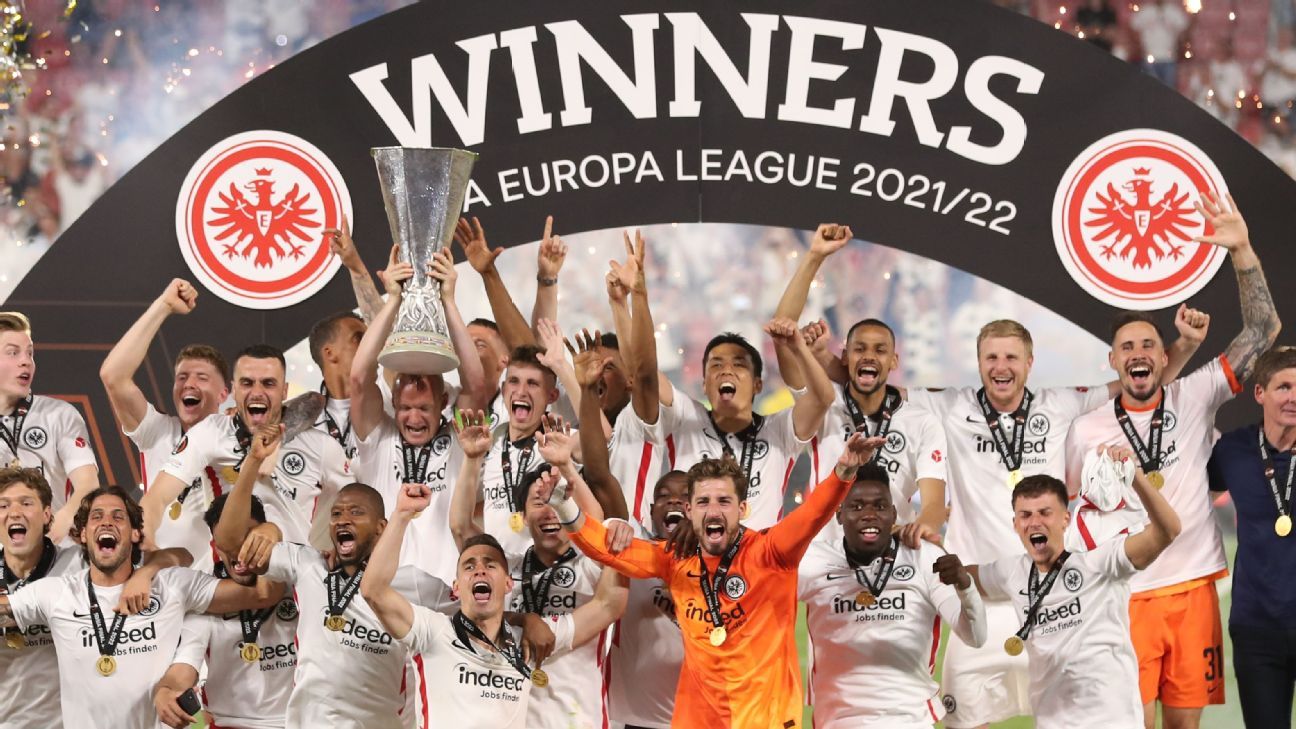Products You May Like
European soccer is in the strangest of places right now. The richest league (the Premier League, duh) and the richest clubs continue to distance themselves financially from their peers, leading to less parity and what feels like more predictability; meanwhile, the Super League saga of a year ago served as a reminder that said clubs are satisfied with neither their money nor their power.
UEFA, European soccer’s governing body, has realistically done the bare minimum to rein in spending that a worldwide pandemic only briefly managed to slow. (It has also failed to execute basic ticket-taking plans, while blaming patrons, at both of its biggest matches of the last year.) Despite serving as a lesser-of-evils protagonist in 2021’s gross Super League affair, it makes sure to blow any goodwill the moment it arrives.
The draw of the Champions League has continued to funnel great players to a narrow number of clubs, which, combined with rising salaries and the continued influence of petrol states, has made it increasingly difficult for well-run, but lesser-brand clubs to rise in the ranks. One could make the case that as the sport becomes (justifiably) more player-friendly, it becomes less fan-friendly in turn.
– MLS, LaLiga, Bundesliga on ESPN+: LIVE games, replays
– Soccer on ESPN+: FC Daily | Futbol Americas
– Don’t have ESPN? Get instant access
BUT — and here’s the turn — the actual game itself is more watchable than ever. The last three rounds of the Champions League alone gave us Real Madrid‘s extra-time comebacks against both Chelsea and Manchester City (after a classic round-of-16 comeback against PSG, no less), Villarreal‘s last-minute upset of 2020 champion Bayern Munich (which they followed with a 150-minute scare of Liverpool) and a tense final that fielded a thrilling combination of past, current and future peak-age stars.
If we don’t celebrate the good in a sport – or anything in the world worth enjoying, really – the bad will overtake us. So with the 2021-22 season mostly in the rearview mirror, I’m going to take a look back at 10 of my favorite stories from a season that, when we allowed ourselves to enjoy it, was intensely enjoyable.

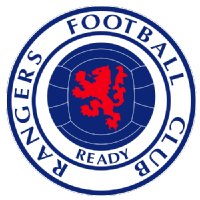
“Heute Ist Egal, Holt Uns den Pokal.” (“Today doesn’t matter, get us the cup.”) It was a sign above the ultras section when I attended Eintracht Frankfurt’s May 8 Bundesliga battle against visiting Borussia Monchengladbach. The home fans were evidently a bit distracted. Granted, they still thundered and drank and sang the whole match because this is Germany and of course they did. But there were bigger matters on the horizon.
If you were to rank clubs by fan support — not quantity, but the passion of a club’s supporters, the volume of individuals who love their team with full heart, mind, body and soul and travel absolutely anywhere to see them play — there’s a chance that both Eintracht and Rangers would rank in the top 10. When these two clubs met in the Europa League final, a week and a half after “Heute Ist Egal,” it offered two beloved clubs a shot at a major European trophy and a prime spot in next season’s Champions League.
As a neutral, it was impossible not to root for both teams at once, but after a cautious final that saw both teams focused primarily on avoiding crippling disaster (and Eintracht allowing a goal on just such a disaster), the Eagles, die Adler, won on penalties.
Epic celebrations followed.
🥳😍@DeuBaPark
—–
⏰ 77. | #SGEuropa | #SGERFC 1:1 pic.twitter.com/tUCc32YNHZ— Europa League Sieger 2022 (@Eintracht) May 18, 2022
Over the previous six Europa Leagues, England‘s “Big Six” clubs (Manchester City, Manchester United, Liverpool, Arsenal, Chelsea and Tottenham) had occupied five of 12 spots in the finals, while Spanish heavyweight Atletico Madrid took one and Italian heavyweight Inter Milan took another. Three finalists in the past four years — Man United in 2021, Inter in 2020 and Atletico in 2018 — had been dumped into the tournament after a third-place group finish in the Champions League, too.
It can sometimes feel that these teams are attempting to win the tournament out of duty more than desire — like they’re trying to make the best of a bad situation. Eintracht and Rangers, though? They cared, 1,000%, about being there. Eintracht fans dominated Barcelona‘s Camp Nou to watch their team eliminate the Blaugrana in a thriller, then followed their team to London for a semifinal victory over West Ham United. Rangers, meanwhile, took down two of Germany’s top four teams, Borussia Dortmund and RB Leipzig, to reach the final as well. (The scenes from their home win over Leipzig were spectacular.)
🇩🇪 Party time in Frankfurt!
A sea of @Eintracht supporters in the city today 🙌 😍#UELfinal pic.twitter.com/LzBAQRC9Cc
— UEFA Europa League (@EuropaLeague) May 19, 2022
These teams and their fans wanted this specific trophy very badly, and it created maybe the purest evening you’ll ever see in a major European competition. In an era of escalating differences between not only the haves and have-nots, but also the haves and have-somes, this match showed the massive potential of a competition like the Europa League, whether or not it’s secondary in importance to many fans.
Say what you will about the “Swiss Model,” the new arrangement UEFA is introducing in 2024-25 for all three of its major continental tournaments. But since teams will no longer be dropped down into the knockout rounds of a lower competition, it will increase the odds that the tournament’s later rounds will feature only clubs that really want to be in that tournament. That potentially increases the odds of more match-ups like Eintracht vs. Rangers.
Well, one can only hope.
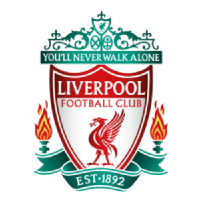
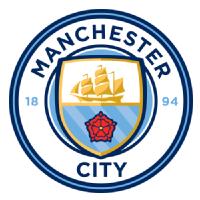
2. Liverpool vs. Manchester City
We can acknowledge that soccer has an inequality issue at the moment while still also acknowledging that these two teams put on a transfixing show in 2021-22.
Earlier this year, it was conceivable that the pair would end up not only taking the Premier League race down to the wire, but also playing in the Champions League and FA Cup finals as well. Alas, the FA Cup draw pitted the two teams together in the semis — Liverpool advanced with a spirited 3-2 win before toppling Chelsea in penalties in the final — and Real Madrid’s late heroics then spoiled both teams’ Champions League hopes.
The teams that defined much of the European season ended up with a mere three trophies between them. The shame, the horror!
1:53
Janusz Michallik reacts to Manchester City’s fourth Premier League title win under Pep Guardiola.
The Premier League race was still incredible. City led Liverpool by 14 points on Jan. 15 and only lost a single match in the new year, but a 10-game winning streak brought the Reds back and when City fell behind 2-0 to Aston Villa at home, it seemed as if Liverpool would complete its comeback and take its second EPL title in three years. Instead, Ilkay Gundogan scored in the 76th minute against Villa, Rodri scored in the 78th and after brilliant play by Kevin De Bruyne, a Gundogan tap-in gave City three goals in six minutes and locked down a fourth league crown in five years.
With gripping relegation drama unfolding at the same time (we’ll come back to that), England’s final matchday — Championship Sunday, Survival Sunday, whatever you want to call it — lived up to all possible dramatic hopes once again.
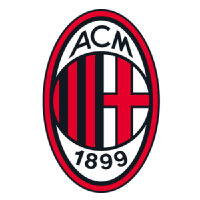
3. AC Milan‘s organically-built Scudetto
In 2019, the Rossoneri brought in midfielder Franck Kessie (from Atalanta), winger Rafael Leao (Lille), left back Theo Hernandez (Real Madrid) and midfielder and onetime Arsenal prospect Ismael Bennacer (Empoli) for about $110 million combined. In 2021, they added defender and Chelsea castaway Fikayo Tomori, Lille goalkeeper Mike Maignan and midfielder Sandro Tonali for about $56m more. Aging (but potent) forward Olivier Giroud came to town for about $1 million from Chelsea, too, a year after Zlatan Ibrahimovic arrived on a free transfer.
1:21
Julien Laurens discusses how Milan’s Scudetto win bodes for their future in Italian football.
It’s incredible when a plan comes together right in front of your eyes.
It makes a bit of sense the same capital investment firm that has invested in Liverpool’s owner, Fenway Sports Group, would also purchase AC Milan. Perhaps no two clubs in Europe have hit on a higher percentage of their player acquisitions in recent years. I don’t want to treat Milan as some penny-pinching club that built a winner from free transfers and a good youth team, but over a short amount of time, the club put together one of the most exciting young core rosters in Europe and it terms of transfer fees, it cost about $50m less than what Manchester City spent on Jack Grealish and Erling Haaland.
The Rossoneri finished second in Serie A for the first time in 2012, and this spring they won their first league title since 2011, finishing the season on a 16-match unbeaten streak and winning their last six games by a combined 13-2 to fend off rival Inter by two points.
When the 2019-20 team finished on a hot streak, the club elected to keep manager Stefano Pioli in place after rumors of an impending dismissal. Pioli’s charges have kept the hot streak going for most of the last two years. Kessie is departing for Barcelona (which is once again toeing the line on Financial Fair Play and hasn’t been able to register him yet), but Giroud and Ibrahimovic aside, everyone mentioned above is 26 years old or younger and could continue to improve in the years ahead. And if they continue to pick their transfers well, they could quickly move up Europe’s overall pecking order, too.

For a while now, it’s been easy to get excited about Nkunku’s potential. Acquired from PSG in 2019 — yet another young PSG product that the club allowed to thrive elsewhere — the attacker combined five goals with 13 assists in all competitions during his debut season for RB Leipzig. He was set back by injuries in 2020-21, but he was still just 23 at the start of this season and with RBL’s addition of the prolific Andre Silva and creative Dominik Szoboszlai, it was safe to assume a big year was coming for the Frenchman.
There’s a difference between a big year and an enormous one, though, and 31 goals/16 assists in all competitions qualifies as the latter. Nkunku scored a hat trick against Manchester City on the way to seven Champions League goals, and he led RBL to its first major trophy, scoring the tying goal against Freiburg in the DFB-Pokal final despite being a man down, then converting his penalty in the ensuing shootout.
With the way RBL ended the campaign — they not only won the DFB-Pokal, but also topped the Bundesliga table over the second half of the season, charging back to snare a top-four finish after a dismal start — it’s fair to think of the team as a potential Bundesliga contender next season if it can keep its exciting roster together this summer. Of course, Nkunku’s ridiculous exploits put him on the radar of quite a few well-monied Premier League teams; time will tell if RBL can keep him in the red and white shirt for another year.


5. Sadio Mane‘s nearly perfect half-year
When Senegal beat Egypt on penalties to win its first Africa Cup of Nations title in February, Sadio Mane scored the winning kick.
When Senegal beat Egypt again on penalties in March to qualify for the World Cup, Mane did the deed once again.
When Liverpool needed an equalizer against Manchester City to keep Premier League title hopes alive in April, Mane put the ball in the net. Less than a week later, he did so twice more against City to drive the Reds to the FA Cup final.
Who scored twice in the Champions League semifinals to help Liverpool fend off Villarreal? Mane. Who scored the game-winner against Aston Villa on May 10 to keep the Reds’ Premier League title hopes alive, then equalized against Wolves on the final matchday to do the same? Mane.
1:30
Craig Burley explains why he doesn’t understand why Sadio Mane would leave Liverpool for Bayern Munich.
The 2020-21 season was a frustrating one for the 30-year-old Liverpool legend. Hit with COVID-19 early in the campaign, he battled a long finishing slump and after scoring 22 and 18 goals respectively in the past two Premier League campaigns, he had only seven before a late hot streak. As Liverpool was moving toward its next generation of young stars, adding Wolves’ Diogo Jota in 2020 and Porto’s Luis Diaz in early 2022, it was fair to wonder if Mane was going to get crowded out of the lineup. Instead, he put together a nearly perfect 2022 before electing to leave the club on his own terms.
What a way to go out.




6. Amazing relegation escapes
It’s like clockwork: Every year in mid-May, you can count on a run of “Man, it would be amazing to have promotion and relegation in American sports” sentiment. Hell, I once simulated 15 years of relegation in college football just to demonstrate its potentially amazing effects. All you have to do is watch one team celebrating a 17th-place finish like it just won the Champions League, and you understand relegation’s seductive power in full.
This year’s relegation battles were among the most dramatic you’ll ever see.
Everton has been in England’s top division for almost 70 straight years, but spent much of the season at the precipice of dropping to the second-tier EFL Championship They lost 17 of 22 league matches between mid-October and early April and appeared doomed, but saved themselves with 10 points from five matches in May. They came back from 2-0 down to beat Crystal Palace on May 19, clinching their safety and prompting incredible celebrations at Goodison Park.
1:36
Don Hutchison praises Everton’s comeback against Crystal Palace that secured the Toffees Premier League football next season.
Everton’s gain was nearly Leeds United‘s loss. Leeds spent 17 years outside from the Premier League before not only returning in 2020-21 but charging into the top half of the table with Marcelo Bielsa’s full-throttle style. But key injuries to forward Patrick Bamford and defensive midfielder Kalvin Phillips (among others) left them less potent in attack and less prepared to avoid getting sliced up in transition. (Translation: that’s baaaaaad.)
They suffered an increasing string of blowouts, and the venerated Bielsa left the club on Feb. 27. Incoming American coach Jesse “not Ted Lasso” Marsch engineered a nice five-game unbeaten run that appeared to guide them to safety, but another streak of blowout losses in early May meant their status was in doubt heading into the final matchday. A 2-1 win over Brentford, combined with a 2-1 loss by Burnley to Newcastle United, kept them up and kept this redemption story going.
Since winning the German Bundesliga in 2007 and playing in Europe six times in seven years, VfB Stuttgart has spent most of the last decade in yo-yo mode, or close to it. Pellegrino Matarazzo’s Reds were in or near the drop zone for much of this season, but a 2-2 draw at Bayern on May 8 kept them within reach of safety, and then Wataru Endo‘s stoppage-time goal against Koln on the Bundesliga’s wacky final matchday pulled them to 15th place and sent Hertha Berlin to the relegation playoff.
STUTTGART SCORE A 92ND MINUTE WINNER TO STAY IN THE BUNDESLIGA!!! 😱 pic.twitter.com/MSCfun2LSg
— ESPN FC (@ESPNFC) May 14, 2022
In Spain‘s LaLiga, Mallorca had been either promoted or relegated for five straight years, and they looked poised to make it six straight until a late charge. Following a dismal 6-2 loss to Granada on May 7, they tied Sevilla, then beat both Rayo Vallecano and Osasuna to finish alongside Getafe and Cadiz with 39 points. Granada, meanwhile, lost to Real Betis and drew with Espanyol on the final day to finish with 38. A single goal would have kept them up.
And then there’s Salernitana. In their first season back in Italy‘s Serie A for more than two decades, the Granata spent most of the campaign in free-fall (they won just three of their first 30 Serie A matches) and ownership issues nearly got them kicked out of the league in midseason. As late as April 15, they were in last place and nine points from safety. Then they won three straight matches. After a draw with Atalanta, they beat relegation-bound Venezia and following two more draws, they simply needed to match Genoa‘s result to finish one of the greatest salvage jobs ever … and proceeded to get stomped, 4-0, by Udinese.
Rarely do you see intense celebrations after a blowout loss, but because Genoa lost to Bologna, Salernitana got to stay up all the same. It was a fittingly strange ending to the strangest of seasons.

7. The UEFA Europa Conference League (no, seriously)
When Norwegian champion Bodo/Glimt twice beat Jose Mourinho’s Roma in the inaugural UEFA Europa Conference League – first in group play, then in the first leg of the quarterfinals – the general online reaction was mockery. The basic tone: Ha ha, look at “The Special One” losing to a minnow, and in a tournament no one cares about, that’s hilarious.
Granted, the margin of defeat in their first match (6-1 to Bodo/Glimt) was particularly jarring, but this reaction was a bit frustrating to see, if only because Bodo/Glimt is a really well-run club with solid upside. They lost just once all season while running away with the 2020 Eliteserien title, then backed it up with another win in 2021. They survived three qualification rounds to make the Conference League group stage, drew with Roma in Rome and nearly won their group, and stomped Scottish champion Celtic in the first knockout round. They’re an exciting club worth following, and while the competition is still in its infancy, the Conference League could turn into an incredible proving ground for both interesting and well-run clubs from smaller leagues, as well as former European powers who have been cast adrift as money has flowed elsewhere.
1:46
Julien Laurens dives into Roma’s 1-0 win over Feyenoord in the UEFA Europa Conference League final and how the trophy adds to Jose Mourinho’s legacy.
Like the Europa League, the Conference League was pretty incredible to watch once the teams that didn’t really care to be there — hello, Tottenham Hotspur — were filtered out.
Out of 23 knockout-stage ties, 11 featured at least six combined goals over two legs, and 10 were decided either by one goal or penalties, including both semifinals and the final. Two former European champions (Feyenoord and Marseille) met in one semifinal, while the other pitted two hungry clubs from Big Five leagues (Roma and Leicester City). Another former European champion, PSV Eindhoven (who happened to be one of the continent’s most enjoyable teams to watch all season), reached the quarterfinals along with Bodo/Glimt.
There’s room for a ton of stories to be told in the soccer landscape — we don’t have to just stick to talking about the 10-12 biggest clubs if we don’t want to — and the Conference League could offer a path for telling them. Count me all the way in.
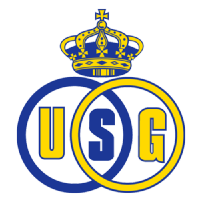
8. Union Saint-Gilloise’s near-fairy tale
The most stirring underdog story of the season came up just short. Playing in the Belgian top division for the first time in more than 50 years, Union Saint-Gilloise came achingly close to winning its first top-division title since 1935.
Led by journeyman manager Felice Mazzu and the brilliant attacking duo of Deniz Undav and Dante Vanzeir, USG lost just twice between October and April and held off Club Brugge to secure first place at the end of the regular season. But the league’s playoff structure proved to be too much. In a six-match round-robin against the rest of the top four — Club Brugge, Anderlecht and Royal Antwerp — the team ran out of gas, sweeping Brussels rivals Anderlecht, but taking just one other point and allowing Club Brugge to catch them and win the league.
Union SG will still play in the Champions League qualifying stage, but its overachieving squad is already, predictably, getting dismantled. The Premier League’s Brighton swooped in for Undav in January (loaning him back for the rest of the season), and Anderlecht hired Mazzu away this week. Upstart stories usually end like this, but this was a hell of a run to follow. Their matches were must-watch on ESPN+ for much of the spring.
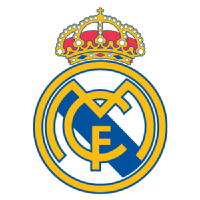
9. The Cardiac Blancos of Real Madrid
That Real Madrid, 14-time Champions League winner, came across as this season’s plucky underdog tale does tell us a little bit about the Premier League’s current spending clout, but Carlo Ancelotti’s squad was joyous and inspiring for much of this Champions League run, and that deserves re-living.
You had Karim Benzema‘s 20-minute hat-trick that turned a likely round-of-16 loss to PSG into a victory.
You had another Benzema hat-trick putting the Blancos up 3-1 over Chelsea in the quarterfinals, and when Chelsea stormed back to take the lead in Madrid, you had the most gorgeous Luka Modric assist you’ll ever see setting up Rodrygo to tie. (Benzema — of course! — won it in extra time.
1:26
Gab Marcotti and Julien Laurens discuss Thibaut Courtois’ incredible performance for Real Madrid vs. Liverpool in the Champions League final.
You had Real Madrid once again going dead-to-rights in the semifinals. After a chaotic 4-3 loss at Manchester City, they fell two goals back, only to get two more goals from Rodrygo in the 90th and 91st minutes in Madrid. In extra time, Benzema — who else! — fired them into the final.
Even before Vinicius Junior‘s goal gave them the title, that was an all-time run of classic comebacks. It might have been the least likely of Real Madrid’s 14 European titles, but that also might make it the most memorable.

10. Nottingham Forest’s return to the Premier League
In 1995, I visited England for the first time with my mother. I already enjoyed international soccer, but this was my first real opportunity for exposure into the world of club soccer and when I discovered (a) there was a team named Nottingham Forest and (b) they were quite good — third in the Premier League, with fun, young attackers and a captain nicknamed “Psycho” — I was hooked. They immediately became my English team of choice. I bought a jersey and everything; my parents have pictures of me wearing it at high school tennis tournaments.
Over the next 26 years or so, almost literally nothing good happened to this club. They were relegated within two years, and after a dead-cat bounce, they were relegated for good in 1999. They fell to the third division for a while and every time they seemed to build momentum, things stalled. They reached the promotion playoff to get back into the Premier League in both 2010 and 2011 but lost both times. They played well for most of 2019-20 but went winless in their final six matches, missed the playoff altogether, then finished 17th the next year.
Forest began this season by earning just one point from their first seven matches, but then hired former Swansea manager Steve Cooper on Sept. 21 and lost only six more league matches all season. They beat Arsenal and pounded Leicester City on their way to the FA Cup quarterfinals, they finished fourth and in the promotion playoff, they got the good bounces they had for so long lacked.
After blowing a two-goal lead against Sheffield United in the semis, keeper Brice Samba made three penalty saves in a shootout win. In the final against Huddersfield Town at Wembley, they took a lead into the final minutes and caught two lucky breaks when potential penalties against them weren’t given.
And so, for the first time in 23 years, the two-time European champs are back in the top flight, but what happens next could be dicey. Three of the nine Forest players with over 3,000 minutes last season were loanees, including star midfielder James Garner (Manchester United) and breakout wingback Djed Spence (Middlesbrough). Plus their No. 2 scorer, 34-year old captain Lewis Grabban, is now out of contract. Owner Evangelos Marinakis has promised to spend, but the club will likely see a flood of moves in the coming weeks, which isn’t always a promising way to head to a higher division.
But that’s for worrying about at a later date. Forest is back, and what a run it took.
